-
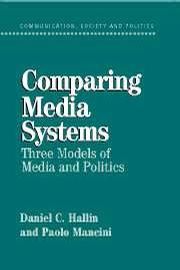
Comparing Media Systems
Building on a survey of media institutions in eighteen West European and North American democracies, Hallin and Mancini identify the principal dimensions of variation in media systems and the political variables which have shaped their evolution. They go on to identify three major models of media system development (the Polarized Pluralist, Democratic Corporatist and Liberal models) to explain why the media have played a different role in politics in each of these systems, and to explore the forces of change that are currently transforming them. It provides a key theoretical statement about the relation between media and political systems, a key statement about the methodology of comparative analysis in political communication and a clear overview of the variety of media institutions that have developed in the West, understood within their political and historical context. -
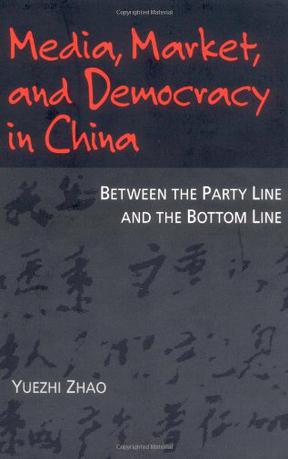
Media, Market, and Democracy in China
-
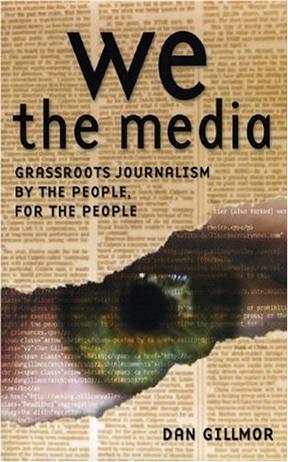
We the Media
Grassroots journalists are dismantling Big Media's monopoly on the news, transforming it from a lecture to a conversation. Not content to accept the news as reported, these readers-turned-reporters are publishing in real time to a worldwide audience via the Internet. The impact of their work is just beginning to be felt by professional journalists and the newsmakers they cover. In We the Media: Grassroots Journalism by the People, for the People, nationally known business and technology columnist Dan Gillmor tells the story of this emerging phenomenon, and sheds light on this deep shift in how we make and consume the news. We the Media is essential reading for all participants in the news cycle: Consumers learn how they can become producers of the news. Gillmor lays out the tools of the grassroots journalist's trade, including personal Web journals (called weblogs or blogs), Internet chat groups, email, and cell phones. He also illustrates how, in this age of media consolidation and diminished reporting, to roll your own news, drawing from the array of sources available online and even over the phone. Newsmakers politicians, business executives, celebrities get a wake-up call. The control that newsmakers enjoyed in the top-down world of Big Media is seriously undermined in the Internet Age. Gillmor shows newsmakers how to successfully play by the new rules and shift from control to engagement. Journalists discover that the new grassroots journalism presents opportunity as well as challenge to their profession. One of the first mainstream journalists to have a blog, Gillmor says, "My readers know more than I do, and that's a good thing." In We the Media, he makes the case to his colleagues that, in the face of a plethora of Internet-fueled news vehicles, they must change or become irrelevant. At its core, We the Media is a book about people. People like Glenn Reynolds, a law professor whose blog postings on the intersection of technology and liberty garnered him enough readers and influence that he became a source for professional journalists. Or Ben Chandler, whose upset Congressional victory was fueled by contributions that came in response to ads on a handful of political blogs. Or Iraqi blogger Zayed, whose Healing Irag blog (healingiraq.blogspot.com) scooped Big Media. Or acridrabbit, who inspired an online community to become investigative reporters and discover that the dying Kaycee Nichols sad tale was a hoax. Give the people tools to make the news, We the Media asserts, and they will. Journalism in the 21st century will be fundamentally different from the Big Media that prevails today. We the Media casts light on the future of journalism, and invites us all to be part of it. -
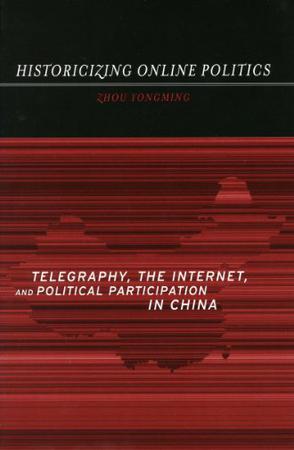
Historicizing Online Politics
It is widely recognized that internet technology has had a profound effect on political participation in China, but this new use of technology is not unprecedented in Chinese history. This is a pioneering work that systematically describes and analyzes the manner in which the Chinese used telegraphy during the late Qing, and the internet in the contemporary period, to participate in politics. Drawing upon insights from the fields of anthropology, history, political science, and media studies, this book historicizes the internet in China and may change the direction of the emergent field of Chinese internet studies. In contrast to previous works, this book is unprecedented in its perspective, in the depth of information and understanding, in the conclusions it reaches, and in its methodology. Written in a clear and engaging style, this book is accessible to a broad audience. -
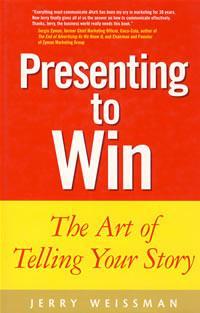
Presenting to Win
In Presenting to Win: Persuading Your Audience Every Time, the world's #1 presentation consultant shows how to connect with even the toughest, most high-level audiences--and move them to action. Jerry Weissman shows presenters of all kinds how to dump those PowerPoint templates once and for all--and learn to tell compelling stories that focus on what's in it for their listeners. Drawing on dozens of practical examples and real case studies, Weissman shows presenters how to identify their real goals and messages before they even open PowerPoint; how to stay focused on what their listeners really care about; and how to capture their audiences in the first crucial 90 seconds. From bullets and graphics to the effective, sparing use of special effects, Weissman covers all the practical mechanics of effective presentation--and walks readers through every step of building a Power Presentation, from brainstorming through delivery. Unlike the techniques in other presentation books, this book's easy, step-by-step approach has been proven with billions of dollars on the line, in hundreds of IPO road shows before the world's most jaded investors. -
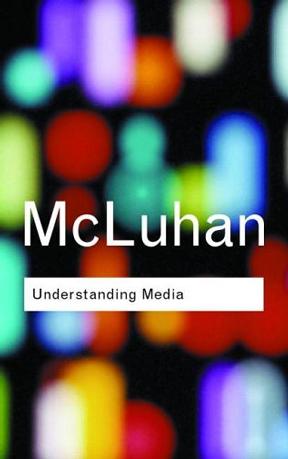
Understanding Media
在线阅读本书 When Marshall McLuhan first coined the phrases "global village" and "the medium is the message" in 1964, no-one could have predicted today's information-dependent planet. No-one, that is, except for a handful of science fiction writers and Marshall McLuhan. Understanding Media was written twenty years before the PC revolution and thirty years before the rise of the Internet. Yet McLuhan's insights into our engagement with a variety of media led to a complete rethinking of our entire society. He believed that the message of electronic media foretold the end of humanity as it was known. In 1964, this looked like the paranoid babblings of a madman. In our 21st century digital world, the madman looks quite sane. Understanding Media : the most important book ever written on communication. Ignore its message at your peril.